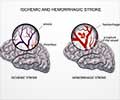Study finds that singing helps restore speech abilities in stroke-induced aphasia.

Structural neuroplasticity effects of singing in chronic aphasia
Go to source). Researchers previously found that sung music helps the language recovery of stroke patients. Now, the researchers have uncovered the reason for the rehabilitative effect of singing.
TOP INSIGHT
Did You Know?
Singing releases endorphins and oxytocin, contributing to improved mood and social bonding in 90% of singers.
#singing #stroke #speechrecovery
“For the first time, our findings demonstrate that the rehabilitation of patients with aphasia through singing is based on neuroplasticity changes, that is, the plasticity of the brain,” says University Researcher Aleksi Sihvonen from the University of Helsinki.
Unlocking Speech Through Song
The language network encompasses the cortical regions of the brain involved in the processing of language and speech, as well as the white matter tracts that convey information between the different endpoints of the cortex.According to the study results, singing increased the volume of grey matter in the language regions of the left frontal lobe and improved tract connectivity, especially in the language network of the left hemisphere, but also in the right hemisphere.
“These positive changes were associated with patients’ improved speech production,” Sihvonen says.
Singing is a Cost-Effective Treatment
Aphasia has a wide-ranging effect on the functional capacity and quality of life of affected individuals and easily leads to social isolation.“Patients can also sing with their family members, and singing can be organized in healthcare units as a group-based, cost-efficient rehabilitation,” Sihvonen says.
Reference:
- Structural neuroplasticity effects of singing in chronic aphasia - (https://www.eneuro.org/content/11/5/ENEURO.0408-23.2024)
Source-Eurekalert
 MEDINDIA
MEDINDIA




 Email
Email










